‘In search of a better life’: Third Baltimore bridge disaster victim was entrepreneur from Honduras
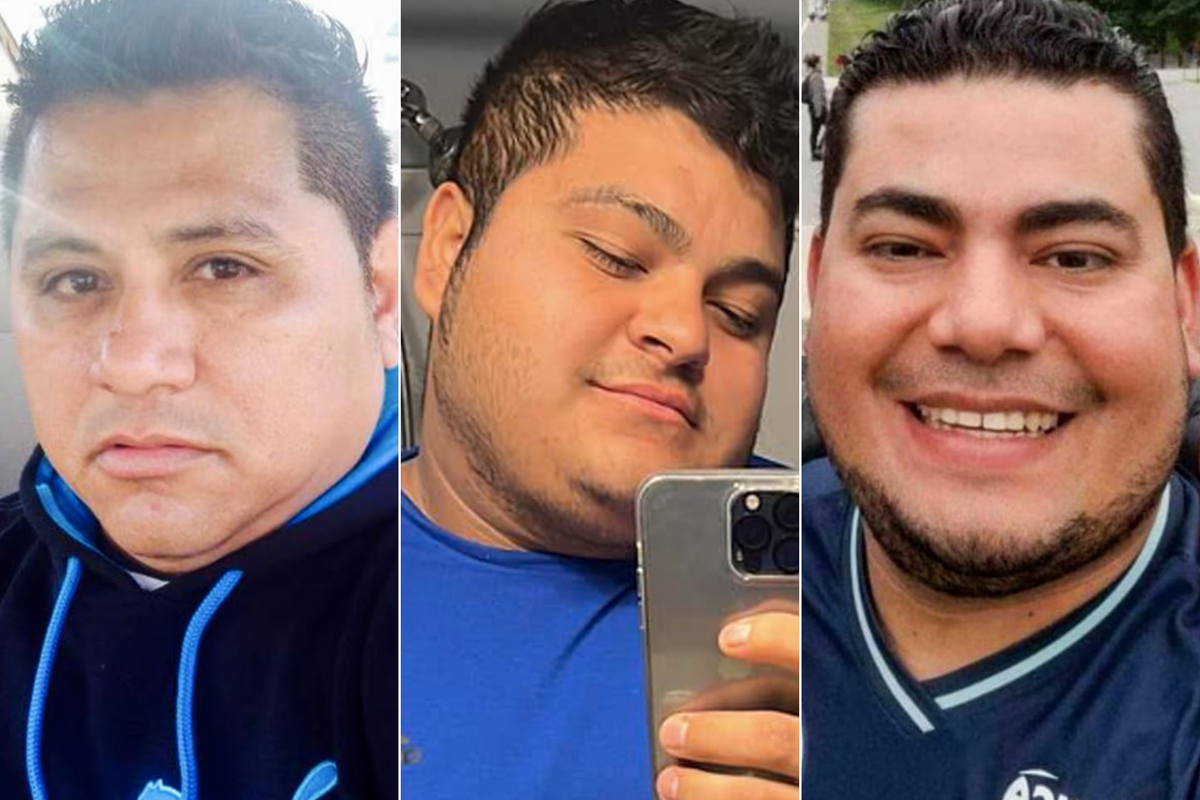
A third body has been recovered after six workers were killed during the Francis Scott Key Bridge collapse in Baltimore last month.
Maynor Yassir Suazo-Sandoval, 38, was identified as the deceased by officials on Friday.
The bridge collapsed at 1.30am on 26 March after a cargo ship collided with a supporting pier. Six men, all of whom were Latino immigrant workers, were on the bridge at the time, authorities said.
The remains of Alejandro Hernandez Fuentes and Dorlian Ronial Castillo Cabrera were recovered from a submerged vehicle in the immediate aftermath of the collapse. Divers are still searching for the remains of Miguel Luna, Jose Mynor Lopez, and Carlos Hernández.
The deceased were “hard-working, humble men,” according to a fellow employee of Brawner Builders, which had hired construction workers to refill potholes when the disaster occurred.
Here’s what we know about the victims of the Baltimore bridge collapse.
Maynor Yassir Suazo Sandoval
The body of Suazo-Sandoval, a native of Honduras who moved to the US when he was 18, was found on 5 April, officials confirmed.
Suazo-Sandoval, a native of Honduras, was married with a son, 18, and five-year-old daughter. He also leaves behind his siblings, who live in both Honduras and Maryland.
Carlos Alexis Suazo-Sandoval, Maynor’s brother, told The Washington Post that he was relieved the body had been found.
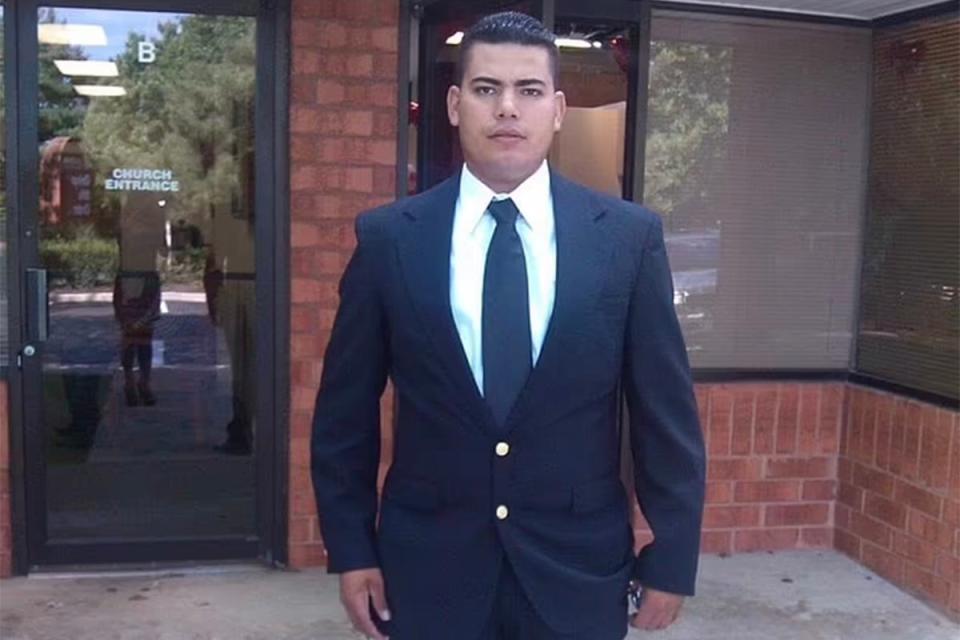
“That was the #1 goal,” he wrote in Spanish, via WhatsApp. “Thank God.”
The worker’s nephew, Hector Guardado, told the paper in Spanish that the news was “hard, but at the same time comforting.”
Suazo Sandoval left Honduras at 18 for the United States and never returned due to his immigration status, according to USA Today.
His brother, Martin Suazo, described Maynor as a “generous man” and an entrepreneur who traveled to the US in “search of a better life,” NPR reported.
Suazo-Sandoval and his wife raised their children in Maryland, and he contributed to his community by working with the nonprofit CASA. In addition to volunteer work, he also donated money to youth soccer leagues in his hometown of Azacualpa, family said.
He gave a lot back to his community in Honduras, Martin said. While working in the US, Sandoval sent money back to Honduras — enough to open up a hotel which provided jobs for his town including his family. On top of this, Martin told the outlet that his brother helped those with disabilities, paid for neighbours’ medicine and doctor’s visits, and he even sponsored a youth soccer league.
Carlos Suazo Sandoval, another brother, described Maynor as a “joyful person who had a vision,” according to CNN en Espa?ol.
Suazo-Sandoval’s family is planning to repatriate his body to Honduras for burial.
The Honduran Embassy told Martin that it would work with him to bring his brother’s body back to the country for funeral arrangements.
Both Suazo-Sandoval and Luna were members of CASA, the organisation said in a statement.
“Our hearts break knowing that Miguel and Maynor were part of the six essential workers who were on the bridge when it came tumbling down...They had a dream of a better future for themselves and their families and made the brave decision to travel to this country for a brighter future.” the organization wrote.
“In a time when there is so much hatred against the immigrant community, we look to the story of Maynor and Miguel who built bridges to connect communities, not building walls to divide them. Today and always we honor them and their sacrifices,” the group wrote.
Miguel Luna
Miguel Luna was the first of the six victims to be named but his body has not been found.
Following the bridge collapse, his wife María del Carmen Castellón told NBC sister station Telemundo 44 that family members were able to get into the restricted zone.
“They only tell us that we have to wait, that for now, they can’t give us information,” she said.
“[We feel] devastated, devastated because our heart is broken because we don’t know if they’ve rescued them yet. We’re just waiting to hear any news.”
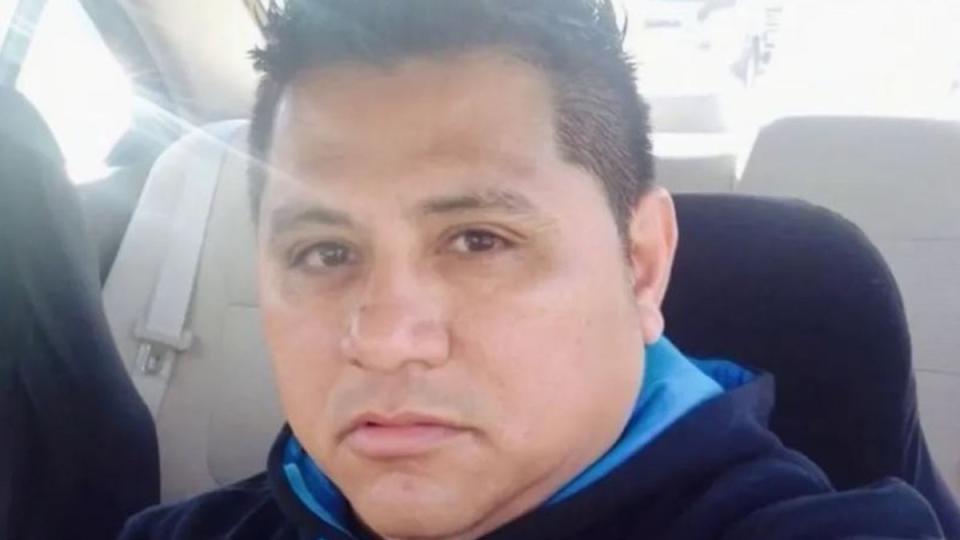
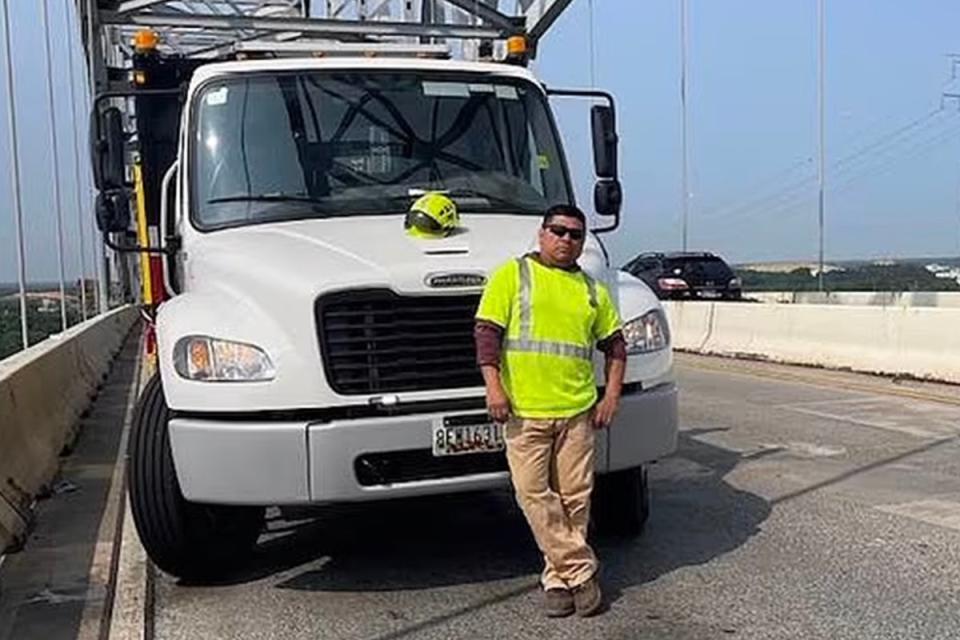
Luna is from El Salvador and has children, family said.
He was also identified by the non-profit organisation Casa, which provides services around Baltimore and other areas to immigrant communities.
“Miguel Luna, from El Salvador, left at 6:30 p.m. Monday evening for work and since, has not come home. He is a husband, a father of three, and has called Maryland his home for over 19 years,” Casa wrote in a statement.
One of Luna’s children, Marvin Luna, told The Washington Post that he knew his father was working on the Key Bridge overnight but did not know it collapsed until one of his friends called him up and said, “The bridge is … gone.”
Marvin then called his father’s phone, but there was no reply.
Alejandro Hernandez Fuentes
The body of Alejandro Hernandez Fuentes, 35, found by divers in a red pickup truck, 25 feet below the surface.
Fuentes, originally from Mexico, was found trapped inside the vehicle alongside Dorlian Ronial Castillo Cabrera.
One of the victims was identified by a driver’s license in his pocket, another by a fingerprint, Colonel Roland L Butler, superintendent of the Maryland Department of State Police said last month.
Dorlian Ronial Castillo Cabrera
Dorlian Ronial Castillo Cabrera, 26, of Dundalk, Maryland, was found with Fuentes, officials confirmed.
Pima Castillo, Cabrera’s sister-in-law, told CNN that he had been working at Brawner Builders for at least three years and loved his job.
Cabrera, from Guatemala, was not married and did not have any children, his sister-in-law said.
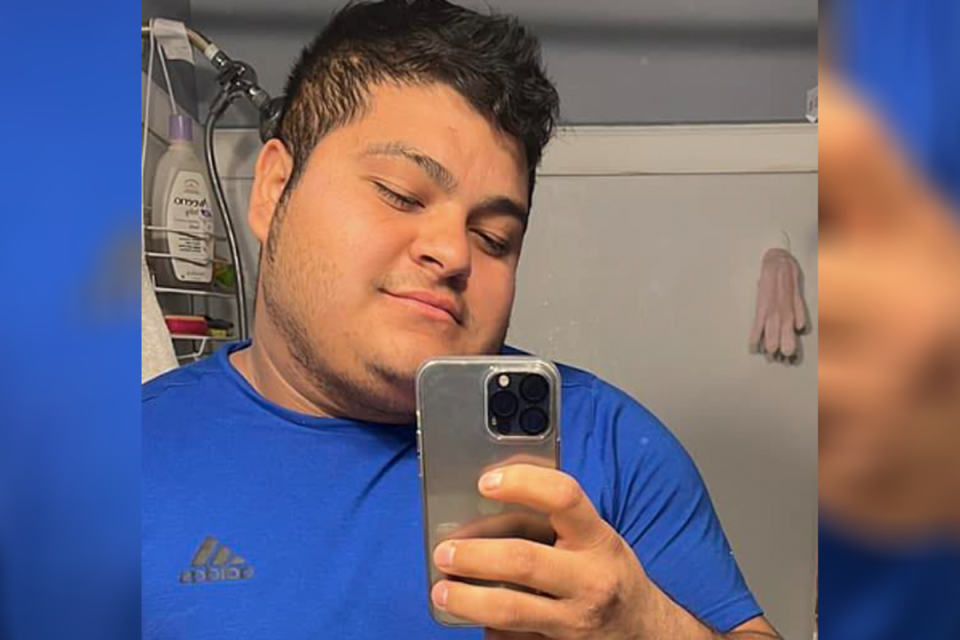
The construction worker’s cousin, Marlon Castillo, also told CNN that Cabrera came to the US to follow his dream and help his mother.
“Unfortunately, he was in a place where no one imagined what was going to happen,” Marlon Castillo told the outlet.
Jose Mynor Lopez
Jose Mynor Lopez, 35, was a Guatemalan native. He was married to Isabel Franco, who told local broadcaster WJZ that he moved to the US 19 years ago.
She said he was a loving father to their child and stepchildren.
“He had a good heart. He was a hard worker. He was always worried about his family too. He died but he was fighting for us always,” she told the broadcaster.
Ms Franco said her husband was friends with Cabrera and that the two enjoyed spending time together.
“I feel bad,” she said. “They were always together.”
Carlos Hernández
Carlos Hernández, 24, was a native of Mexico who worked construction in the US.
He reportedly sent a voice recording to his girlfriend in the moments before the bridge collapsed, according to CNN via Univision.
“Yes, my love, we just poured the cement and we’re just waiting for it to dry,” he told his girlfriend, Jazmin Alvarez, who lives in Mexico.
The couple reportedly used a GPS tracking app to keep note of each other’s locations in the event of an emergency. She said on the night of the collapse the GPS showed Hernández in the water, but she assumed it was just a glitch in the app.
“I have the GPS tracking on his cellphone, so I looked, and it showed he was by the water, but I figured since he was on the bridge, that’s why it showed him being near the water,” she told Univision. “He didn’t answer.”
She said she received a call at around 4am from Hernández’s aunt informing her of the accident. She thought he had been in a car accident, and said she could not have imagined the magnitude of the bridge collapse.
Hernández’s mother told the outlet that she is trying to secure a humanitarian visa to the US so she can visit Maryland and plead with officials to keep searching for her son’s body.
‘Hard-working, humble men’
The members of the construction crew were refilling potholes when the incident occurred, officials said.
Brawner Builders employee Jesus Campos told The Baltimore Banner that the victims were “all hard-working, humble men.”
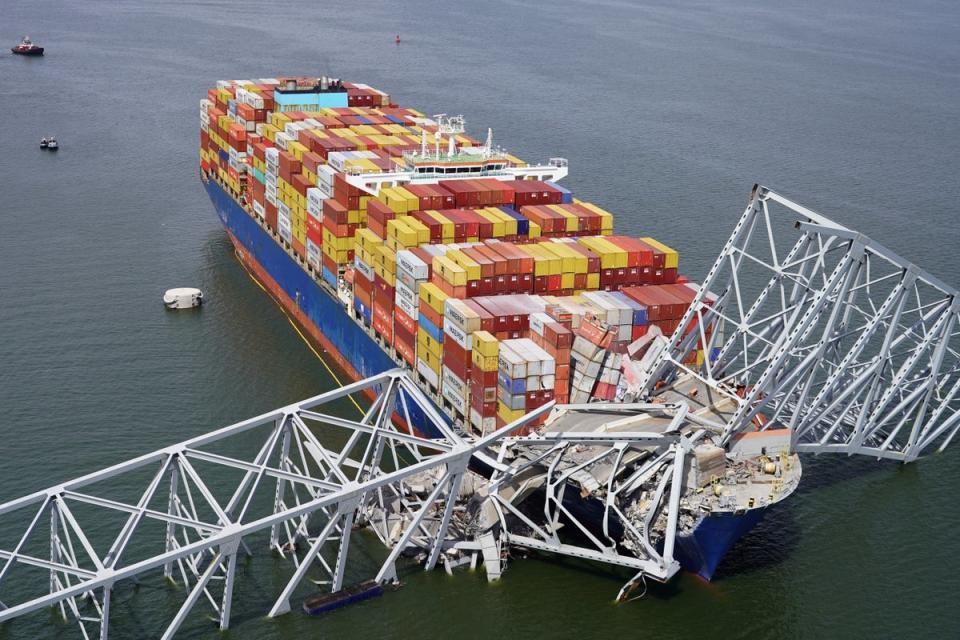
Those presumed deceased are from Mexico, El Salvador, Guatemala and Honduras, authorities said.
Mr Campos told NBC that he had been working on the bridge only a month before this week’s tragic incident.
“It could’ve been me,” Mr Campos said. “Around a month ago I was working on the bridge… we had been moved to the day shift and they went at night.”
However, he believes that nothing could have been done to save the workers in time and evacuate them.
“It happened in the blink of an eye… It couldn’t be done,” he added.
Jeffrey Pritzker, executive vice president of Brawner Builders, told the Baltimore Banner that “the company is in mourning and it’s a terrible, unanticipated tragedy.”
Following the tragedy, the community has shown an outpouring of support for the loved ones of the workers. Fundraisers to support the victims’ families have so far raised more than $200,000.
A GoFundMe page, organised by the volunteer group Latino Racial Justice Circle, explained that the cash would be “distributed directly” to the “families of the victims” of the bridge collapse. The organisers paused their fundraiser to start giving the $98,000 in funds to the victims.
On 4pm on 27 March, the Baltimore City Mayor’s Office of Immigrant Affairs set up another fundraiser, which has collected contributions from 1,529 donations totalling more than $114,000.
This article has been updated